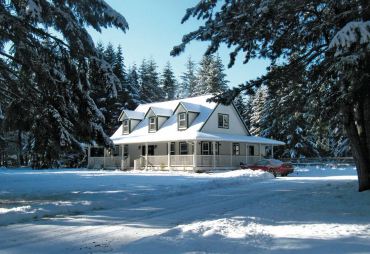 It’s that time of year when the kids go back to school, the leaves start falling and people put away their summer clothes away and bring out sweaters, scarves and boots. But there’s a large contingent of folks who after years of enduring the mild but very gray winters are fortunate enough to be able to fly away, following the sun much like birds migrating south for the winter. Hence the term “snowbirds.” Longtime snowbirds have usually established a process of buttoning up their winter homes that can start as early as September.
It’s that time of year when the kids go back to school, the leaves start falling and people put away their summer clothes away and bring out sweaters, scarves and boots. But there’s a large contingent of folks who after years of enduring the mild but very gray winters are fortunate enough to be able to fly away, following the sun much like birds migrating south for the winter. Hence the term “snowbirds.” Longtime snowbirds have usually established a process of buttoning up their winter homes that can start as early as September.
But for those who are new to snowbirding, the overwhelming tasks that have to be accomplished can seem like their arrival to the land of sun and sky will never come to pass. And yet with a good checklist in hand, the process can be streamlined, making an exit from the rain less stressful.
(1) Create a list of important numbers such as your utility and alarm company, neighbors and emergency contacts, making sure that you inform your alarm company of who your local emergency contact will be. Even more importantly, add reliable service providers such as a handyman, pest control and plumber because there’s nothing worse than trying to find someone when you need an emergency repair and you’re a thousand miles away basking in the sun.
Tip: Consider hiring a home-watch company that will take responsibility for checking your home inside and out on a regular basis and especially after a storm or alarm call.
(2) Create a drawing of your home for your emergency contacts, noting where the water shut-off valve, fire extinguisher, circuit breaker and security alarm boxes are located. A better option is to turn the water valve off and bleed the lines by turning on your outside spigots until all the water is drained. Make sure you drop a toilet bowl cleaner into the toilets and then add a note (just in case) that the water is off.
Tip: You can also turn off any circuit breakers to noncritical areas of the house, making sure you label them beforehand. If your water heater has a vacation mode, set it to that. Otherwise shut the breaker that powers it.
(3) For a small fee, you can have all of your mail, even junk mail, forwarded to your summer address so it doesn’t pile up and make it obvious no one is home. If you have an alarm system, do not turn your phone off. The best solution is to have your home phone forward to your cell phone or your summer home phone.
Tip: It’s a good idea to have someone clear flyers or door hangers, leaves or debris that may accumulate on your porch.
(4) Move all your patio furniture, flower pots, water hoses and grill indoors. And anything else that may blow around during a heavy wind. Make sure you clean the grill and flower pots and spray garbage cans with Lysol or a similar product. Wrap exposed pipes with heat tape and cover spigots with bibs.
Tip: This is a great time to clear up any and all things that you’ve been meaning to get rid of, donate or recycle.
(5) Cut any potentially destructive tree branches, install wood dowels in sliding doors and windows to restrain them, have your roof inspected for leaks or damage and, if possible, include the roof crawl space, as often times it can take a significant amount of time before a leak bleeds through the ceiling. Seal any access points around your home where critters could possibly enter and set up housekeeping.
Tip: If leaving a car behind, it’s a good idea to unplug the battery.
(6) Clean all interior surfaces and dispose or store in a sealed container any kitchen food products that you want to keep but could attract pests, including bird food. Empty out fridge, freezer and indoor recycling cans and thoroughly clean all appliances so that no food particles that may attract pests are left.
Tip: Strategically placing mothballs and dryer sheets throughout your home is supposed to deter mice.
(7) Unplug your refrigerator and all small appliances and electronics. But more importantly, the ice cube maker. Even with the refrigerator unplugged, a faulty line from a leaking ice cube maker can cause considerable damage. Clean your dishwasher, paying special attention to the corners where mildew can grow. Same thing with your washer. Then leave the appliance doors open to encourage air circulation and discourage mold and mildew.
(8) Set several timers to turn on at different times, make sure all windows are closed and locked, close all curtains and blinds, set your thermostat to 65 degrees, set your alarm and make sure your emergency contacts have the important numbers list.
Whew! You are done and have ensured that you’ve covered everything that may potentially go wrong with your home while you’re away. Can something still go wrong? Absolutely, but taking the time to adhere to the old-time saying “prevention is the better part of a cure” is the smart way to mitigate the possibility.
Can’t get to it all yourself, or don’t want to? Hire someone to do the items on the list you don’t care to or can’t do. You’ve earned the right to take a break and let someone else do the hard stuff. You should be flying south with a smile on your face and wings on your feet, as free as the proverbial bird or in this case, snowbird.













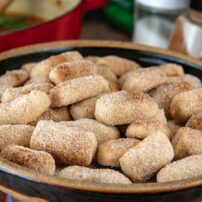






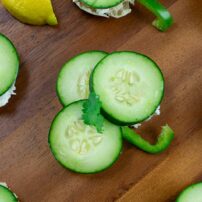
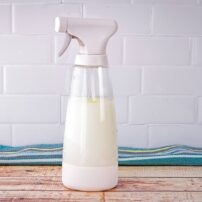



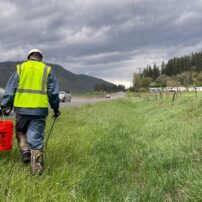


Comments